by Richard William Nelson | Jul 11, 2010
 Natural selection is a simple scientific theory, according to the American Museum of Natural History, New York. For the museum’s Darwin Exhibit, the museum curator, Niles Eldredge, explains:
Natural selection is a simple scientific theory, according to the American Museum of Natural History, New York. For the museum’s Darwin Exhibit, the museum curator, Niles Eldredge, explains:
“A century and a half ago, Charles Darwin offered the world a single, simple scientific explanation for the diversity of life on Earth: evolution by natural selection.”
“Natural selection.” Eldredge explains, “is a simple mechanism that causes populations of living things to change over time.”
Continue Reading
by Richard William Nelson | Jun 27, 2010
 Faced with the failure of the Stanley-Urey model to explain the origin of life, evolutionary scientists have been exploring the RNA World theory. With only the four nucleic acids required to form RNA (pictured left) rather than the twenty amino acids to form a protein, the chance probability tipped the advantage to the RNA-first theory, but that is not all.
Faced with the failure of the Stanley-Urey model to explain the origin of life, evolutionary scientists have been exploring the RNA World theory. With only the four nucleic acids required to form RNA (pictured left) rather than the twenty amino acids to form a protein, the chance probability tipped the advantage to the RNA-first theory, but that is not all.
In The Ancestor’s Tale: A Pilgrimage to the Dawn of Evolution, Richard Dawkins explains –
“This is the RNA World. To see how plausible it is, we need to look at why proteins are good at being enzymes but bad at being replicators; at why DNA is good at replicating but bad at being an enzyme; and finally why RNA might just be good enough at both roles to break out of the Catch-22.”
Continue Reading
by Richard William Nelson | Jun 20, 2010

Why Evolution is True, one of the best-selling books in support of evolution written by Jerry Coyne and endorsed by Richard Dawkins, conveniently fails to address one minor evolutionary issue—the origin of life problem. Charles Darwin had been stonewalled by this problem, too, in The Origin of Species.
In the mid twentieth century, using a simple laboratory experiment, Stanley Miller (pictured left) and Harold Urey (pictured right) were the first to demonstrate how life may have started from simple molecules and energy. In the excitement, addressing the scope of the Miller-Urey probability issue was postponed.
Continue Reading
by Richard William Nelson | Jun 6, 2010
 This is the story of the Ida Fossil Fiasco. “This little creature is going to show us our connection with the rest of all the mammals, with cows and sheep, and elephants and anteaters,” said Sir David Attenborough, who narrated the BBC documentary in May 2009.
This is the story of the Ida Fossil Fiasco. “This little creature is going to show us our connection with the rest of all the mammals, with cows and sheep, and elephants and anteaters,” said Sir David Attenborough, who narrated the BBC documentary in May 2009.
“The more you look at Ida, the more you can see, as it were, the primate in embryo.”
Really? According to Jørn Hurum, the paleontologist from Oslo University’s Natural History Museum, who assembled the scientific team –
“It tells a part of our evolution that’s been hidden so far. It’s been hidden because the only [other] specimens are so incomplete and so broken there’s almost nothing to study.”,
Continue Reading
by Richard William Nelson | May 30, 2010
 In a letter to Sir Joseph Dalton Hooker, his closest friend in 1857, Charles Darwin confided, “I cannot swallow Man [being that] distinct from a Chimpanzee.” Chimp genetics, by extension of Darwin’s theory, were expected to be similar to humans. Charles Darwin writes in his Autobiography –
In a letter to Sir Joseph Dalton Hooker, his closest friend in 1857, Charles Darwin confided, “I cannot swallow Man [being that] distinct from a Chimpanzee.” Chimp genetics, by extension of Darwin’s theory, were expected to be similar to humans. Charles Darwin writes in his Autobiography –
“My Descent of Man was published in February 1871. As soon as I had become, in the year 1837 or 1838, convinced that species were mutable products, I could not avoid the belief that man must come under the same law.”
Continue Reading
by Richard William Nelson | May 9, 2010
 In 1856, just three years before the publication of The Origin of Species by Means of Natural Selection, the first Neanderthal in the fossil record was discovered in the Neander Valley limestone quarry located in Germany.
In 1856, just three years before the publication of The Origin of Species by Means of Natural Selection, the first Neanderthal in the fossil record was discovered in the Neander Valley limestone quarry located in Germany.
In The Descent of Man, Darwin argued against the concept that the Neanderthals were humans’ ancestors based on the Neanderthal skull’s larger size. “Nevertheless,” Darwin noted,
“It must be admitted that some skulls of very high antiquity, such as the famous one of Neanderthal, are well developed and capacious.”
Continue Reading
by Richard William Nelson | Apr 25, 2010
 Each fossil record discovery has a unique story, and the Archaeoraptor matter is undoubtedly no exception. In November 1999, a feature article in National Geographic titled “Feathers for T. Rex? New Birdlike Fossils Are Missing Links In Dinosaur Evolution” turned out to be one of the most spectacular debacles in the history of paleontology, rivaling the Piltdown Man saga. The article alleged –
Each fossil record discovery has a unique story, and the Archaeoraptor matter is undoubtedly no exception. In November 1999, a feature article in National Geographic titled “Feathers for T. Rex? New Birdlike Fossils Are Missing Links In Dinosaur Evolution” turned out to be one of the most spectacular debacles in the history of paleontology, rivaling the Piltdown Man saga. The article alleged –
“A true missing link in the complex chain that connects dinosaurs to birds.”
Discovered in the northeastern Liaoning Province of China in 1997 by farmers (pictured left), the fossil appeared to have a bird’s body with a small, terrestrial dinosaur’s teeth and tail. The name given to the fossil, Archaeoraptor liaoningensis, is in recognition of its discovery site.
Continue Reading
by Richard William Nelson | Apr 18, 2010
 Darwin had a significant influence on Karl Marx (pictured left). Struggle and survival are central to Darwin’s theory of evolution. The full 1859 title of The Origin is – On the Origin of Species by Means of Natural Selection and the Survival of the Fittest in the Preservation of Favoured Races.
Darwin had a significant influence on Karl Marx (pictured left). Struggle and survival are central to Darwin’s theory of evolution. The full 1859 title of The Origin is – On the Origin of Species by Means of Natural Selection and the Survival of the Fittest in the Preservation of Favoured Races.
Darwin’s premise on survival and struggle in nature paralleled Karl Marx’s premise on social class struggle. Marx summarized the importance of “struggle” in the first line of chapter one of The Communist Manifesto, published in 1848 –
“The history of all hitherto existing society is the history of class struggles.”
Continue Reading
by Richard William Nelson | Apr 4, 2010

Leaving studies in medicine at the University of Edinburgh after the first year and fearing that his son would “ne’er do well,” his father [Robert Darwin], a practicing physician, enrolled Charles at Christ’s College (pictured left), University of Cambridge, in 1827.
His father reasoned that a Bachelor of Arts degree in theology would qualify Darwin to become financially independent as a Church of England clergyman—a guaranteed government professional with a comfortable income.
Continue Reading
by Richard William Nelson | Mar 21, 2010
 The consensus on the scientific validity of Charles Darwin’s theory of natural selection varies even among evolution scientists.
The consensus on the scientific validity of Charles Darwin’s theory of natural selection varies even among evolution scientists.
Richard Dawkins, perhaps the most famous advocate of evolution in the twenty-first century, explained that natural selection represents a “non-random survival of randomly varying hereditary instructions” in the article “The Illusion of Design,” published in the Natural History Magazine.
While Dawkins’ explanation of natural selection is widely popular, a consensus amongst evolutionary scientists remains a contentious issue.
Continue Reading
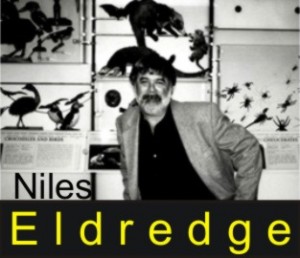 Natural selection is a simple scientific theory, according to the American Museum of Natural History, New York. For the museum’s Darwin Exhibit, the museum curator, Niles Eldredge, explains:
Natural selection is a simple scientific theory, according to the American Museum of Natural History, New York. For the museum’s Darwin Exhibit, the museum curator, Niles Eldredge, explains:
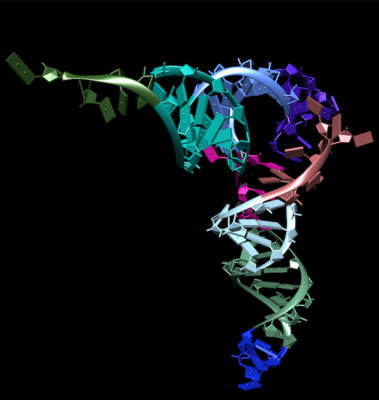 Faced with the failure of the
Faced with the failure of the 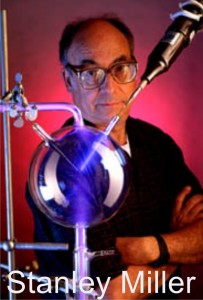
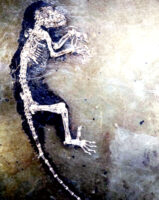 This is the story of the Ida Fossil Fiasco. “This little creature is going to show us our connection with the rest of all the mammals, with cows and sheep, and elephants and anteaters,” said
This is the story of the Ida Fossil Fiasco. “This little creature is going to show us our connection with the rest of all the mammals, with cows and sheep, and elephants and anteaters,” said 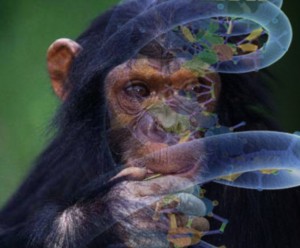
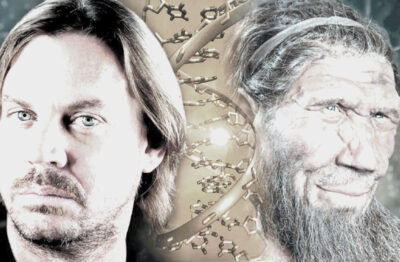 In 1856, just three years before the publication of
In 1856, just three years before the publication of 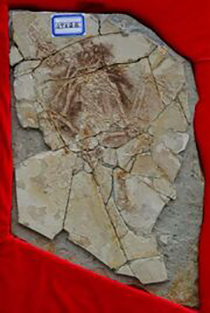 Each
Each 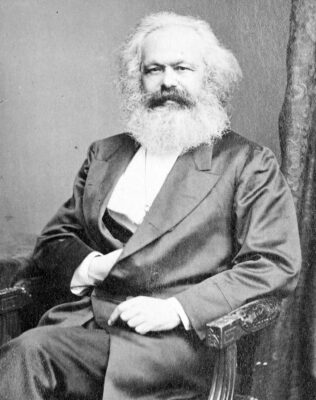 Darwin had a significant influence on
Darwin had a significant influence on 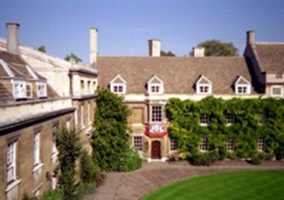
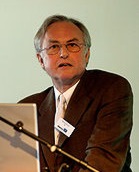 The consensus on the scientific validity of Charles Darwin’s theory of
The consensus on the scientific validity of Charles Darwin’s theory of 